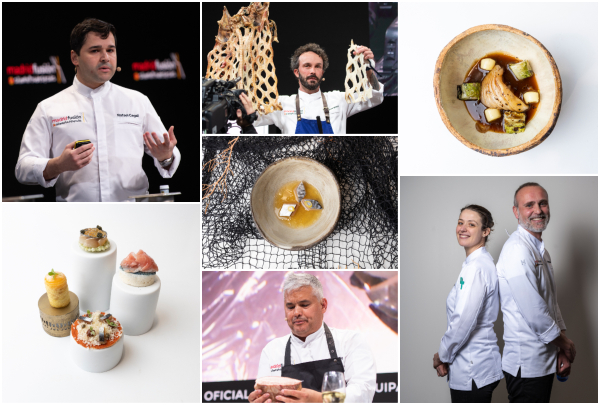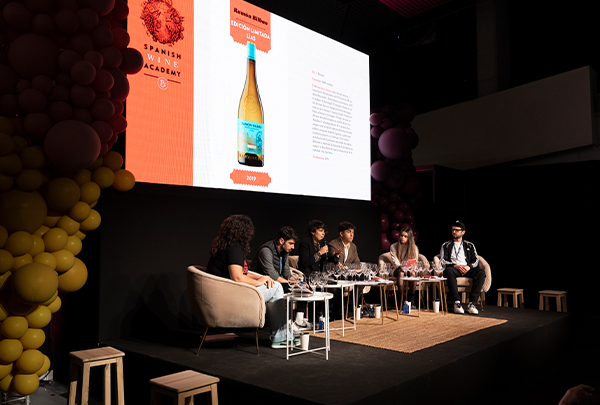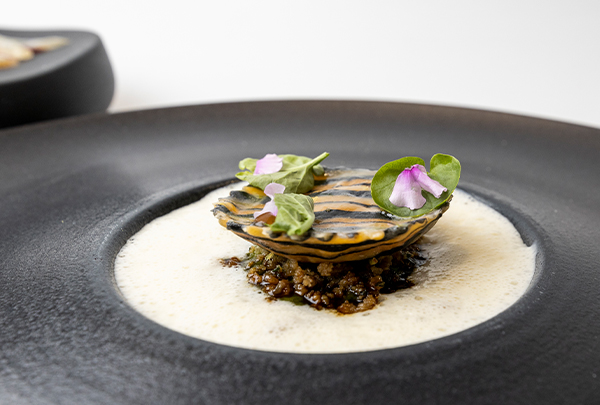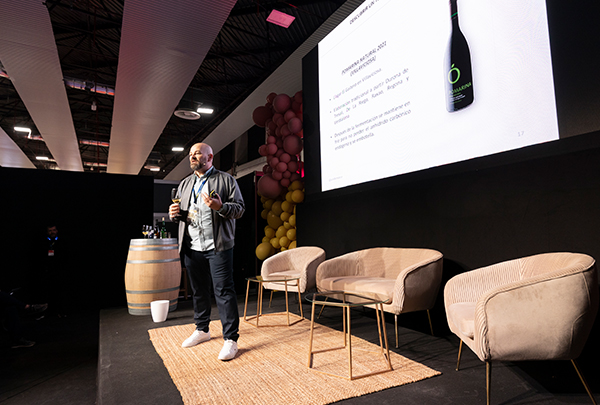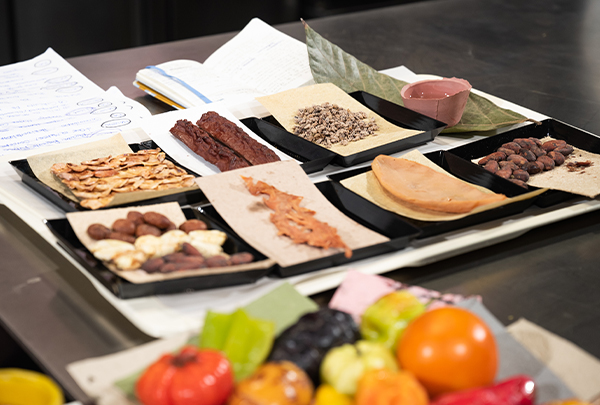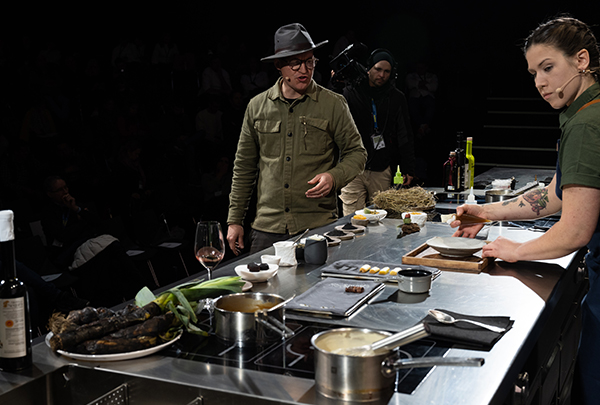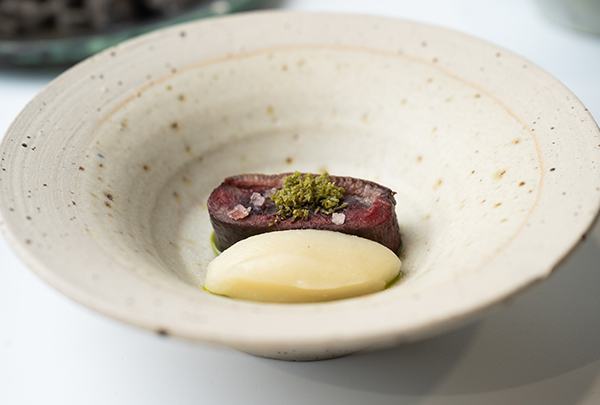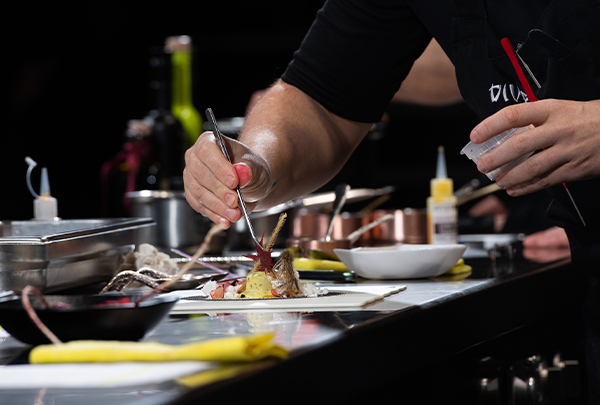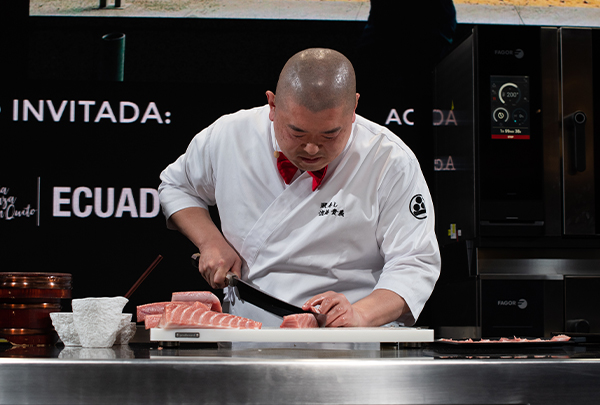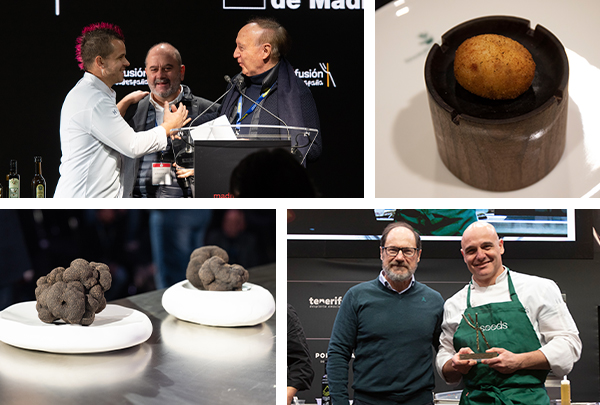News
Everything is used at Madrid Fusión
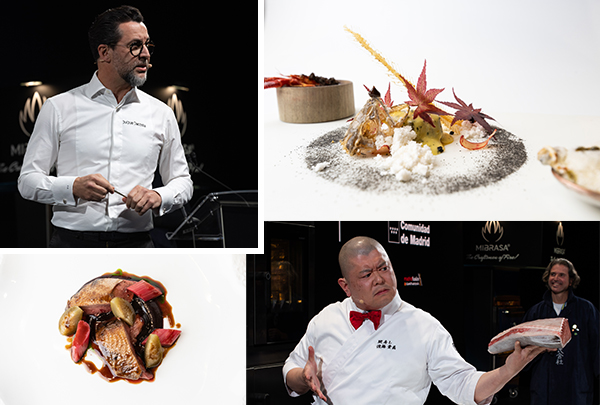
Chefs from all over the world make a stand for leverage cuisine from different perspectives, at an event dominated by Dabiz Muñoz's overwhelming imagination
This year's Madrid Fusión Alimentos de España is like one of Dabiz Muñoz's recipes. Free of complexes, it can combine some very different ingredients - from the Mediterranean to the Arctic, from the Pyrenees to the Andes, the tradition and the hugely modern - and produce a fascinating harmony all the same. The Madrid chef's amazing creativity was the main course at an event starring Ricard Camarena, Quique Dacosta, Pedrito Sánchez, Francis Paniego, Andrias Ziska, James Knappett, Marlene Vieira, Takayoshi Watanabe and Virgilio, Pía and Malena. Some very different larders, trajectories and ways of understanding cookery, all repeating one word like a common ingredient: leverage. Not just in terms of produce, but also of people, wisdom, and ideas.
“Some people thought the congress model had exhausted itself, but what's been exhausted is the way in which we took them on - said Carmena - people come here to show things, more than to demonstrate and share, more than showcase themselves”. The chef from Valencia used his talk to present a range of subproducts he has started to sell as a delicatessen, but above all to illustrate a working philosophy running through all his projects. Compotes made from leftover orange juice, aubergine juice reused in desserts, a pumpkin curry put together using fruit that did not reach the required sweetness ... everything is leveraged by Camarena. “That's what creativity is for”.
Just before the man from Valencia launched his anti-waste diatribe, Dabiz Muñoz had been working the room at Ifema. The DiverXO chef was showcooking again on stage at Madrid Fusión for the first time since 2014, and the occasion shrank an auditorium that had been supplied with dozens of extra seats. It was worth waiting for, because the Madrid chef produced a tour de force with over one hundred items condensed into four recipes, which served to explain the creative times he now lives in. “After many years of travelling and observing that everyone goes for the ingredients around them, I wanted to draw up an apology for the local larder", he explained. This produces cuisine that is "lighter than ever, with more informal codes", claimed Capel, albeit with the same overwhelming complexity that "attacks the palate on all flanks".
In Dabiz's incendiary mindset, a plate of spinach can contain buffalo stracciatella, Tahiti lime, jalapeño pepper emulsion, kale leaves, "milenrama" herb and vanilla oil. All ideas can be leveraged, such as his brilliant pot scrapings stew, inspired by a tactic well known to those who cook for others, or the ode to hake with a "carioca" wedge, pil-pil sauce from hake heads, fish "kokotxa" neck, fried fish spine, fish fat powder, and ashes from the skin. “Sometimes it's difficult to fit so many things in, but I see every recipe as a separate story where identity is mapped out by the whole, like a "cocido madrileño" stew", he explained.
Arctic sea food
The congress left the host city on an exciting trip around the world. Congress-goers in the auditorium gaped at the scenery around Koks in the Faroe Islands, the planet's most isolated Michelin star. At a modest cabin, reached following a heroic trajectory, Poul Andrias Ziska cooks up huge chunks of shellfish plucked from the freezing water of the Arctic barely 20 minutes before they land on diners' plates. In an archipelago where until very recently obtaining food meant fighting the elements, "we can't afford to waste anything". He avails himself of fermentations, maturing processes and canned produce to prolong the lifespans of herbs and fruits until the snow recedes.
Something similar happened in Andorra before tourism arrived. Until a few decades ago, the Principality, "trapped or perhaps freed by mountains", boasted a unique gastronomic ecosystem - influenced by Catalan and French cuisine, by its border location, by the mountains, the river, tobacco-growing or rural religiousness - which Francis Paniego, Jordi Grau and Pol Contreras decided to reinterpret at Ibaya, the country's only Michelin star. From the Pyrenees to the Andes, where Virgilio Martínez, his sister Malena and Pía León run their Mil restaurant and the Mater research centre, which takes in ideas and ingredients donated by indigenous communities to the other businesses of the saga. They presented an exercise to deconstruct the macambo - a direct cousin of cocoa - with countless different preparations fashioned from items which are generally thrown away.
The day was brought to a conclusion with a reflection by Quique Dacosta on beauty and on the artistic connotations of cookery, with the testimony of a man who has made leverage his philosophy of life. Diametrically opposed to the excesses of Dabiz Muñoz's recipes, Pedrito Sanchez not only gets the very best out of Bagá's square metres, but he is able to arouse emotions with only two items. At the end of the day, "the most important mise en place a chef can produce is thought".

